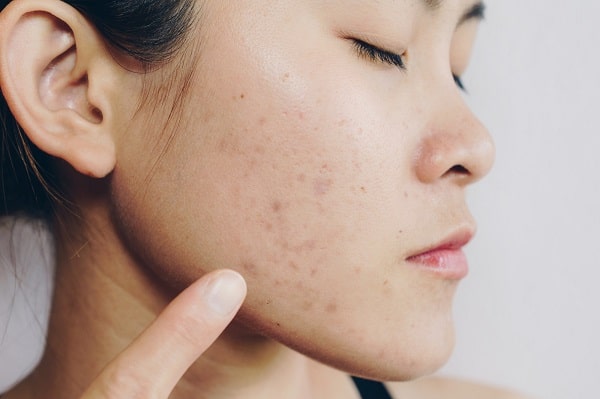The Pros and Cons of Popular Acne Treatment Methods
Acne is a common skin condition that affects teens and adults across the globe. It has influenced the confidence and emotional well-being of people. This condition can be treated using several methods. Acne scar removal is fast becoming a dynamic area in medicine. The choice of the acne scar treatment method depends on the patients’ skin and medical condition, necessitating a clear understanding of the pros and cons of each method.
Different Acne Scar Treatment Options and their Pros and Cons
There are different treatment options for acne scar removal. These can be broadly classified into two categories, namely, home remedies and medical treatment methods.
The frustrating acne breakout and the subsequent scars prove to be frustrating, fueling those suffering from this skin condition to seek help in the form of various treatment methods. The following are the most commonly used acne scar treatment methods:
Salicylic acid
- Pros: One of the naturally occurring compounds, salicylic acid exfoliates the skin, destroys harmful microbes, and reduces inflammation.
- Cons: Salicylic acid might cause allergic reactions in some hypersensitive persons.
Retinoids
- Pros: Topical retinoids help to get rid of acne scars. They reduce acne lesions, block inflammation, and expedite skin regeneration.
- Cons: Retinoids may make the skin sensitive to the sun, necessitating the use of sunscreen.
Lactic acid
- Pros: Lactic acid helps to reduce the scars and make the overall skin texture smooth.
- Cons: The new cells on the skin formed due to the use of Lactic acid may make the skin sensitive to the sun. Moreover, this treatment may cause skin irritation in some people.
Alpha hydroxy acids (AHAs)
- Pros: AHAs help to prevent clogging of the pores in the skin and eliminate dead skin cells. Using AHAs for acne scar treatment helps to reduce the appearance of acne scars.
- Cons: The potential of sunburn necessitates limiting exposure to sun while using this method for acne scar removal.
Antibiotics to treat acne:
One of the options to treat acne, Antibiotics may be taken as tablets or can be applied to the skin in the form of cream. These help to eliminate the bacteria and eradicate the spots in the skin.
- Pros: Antibiotics are effective in reducing inflammation; they provide better results in a short time.
- Cons: Antibiotics may cause issues in the digestive system and may lead to certain serious side effects when used for a long term.
Steroid injections:
Injections of corticosteroids help significantly in treating the raised acne scar tissue if the person has either keloid or hypertrophic scars.
- Pros: Corticosteroid shots work well for cysts. Pain is greatly decreased, and so is the itching. The appearance of the acne decreases rapidly.
- Cons: Sometimes, the use of steroid injection may leave a bit of indentation in the skin after the acne scar resolves. This is not permanent; the indentation usually fills in.
Microneedling:
This is a minimally invasive skin rejuvenation procedure involving the use of fine needles. Tiny, invisible punctures are created on the skin using the needles. The body reacts and heals these punctures, producing new collagen and elastin in the process.
- Pros: This procedure is effective in acne scar removal and reducing stretch marks. Downtime is minimal.
- Cons: Results are not quick. It takes a series of sessions and a long time for achieving the intended results. Microneedling doesn’t suit everyone. It is not suggested for people with active acne and skin irritation.
Laser treatment for acne scar removal:
Targeting the bacteria that are the root cause for acne, Laser acne scar treatment helps to minimize the scars. It also minimizes the change in pigmentation after the acne heals.
- This acne scar treatment works in harmony with the skin tissue’s structure. It is a bloodless treatment option and doesn’t cause many side effects, and is safer than the harsh chemical peels.
- Cons: Acne scar treatment using the laser method involves several sessions for effective acne scar removal. When performed on darker skins, this might lead to keloids.
Chemical Peels:
Acids are used for acne scar removal in this method of acne scar treatment. Some mild chemical peels can be used at home. The stronger ones required for producing dramatic results need to be used professionally by dermatologists.
- Pros: In Addition to the effective removal of the keratinized cells and other contaminants, this treatment enables the elimination of any skin imperfection.
- Cons: Acid being used for acne scar treatment in this method, there is a possibility of skin burn, skin peeling, and temporary discomfort.
Key Takeaway
Most of the acne scar removal treatment methods reduce the visibility and size of the acne scars. Many of the properly treated acne scars will fade away with time, and they become barely noticeable. Experienced dermatologists and dermatologic surgeons will be able to perform acne scar removal treatment procedures effectively and safely.

